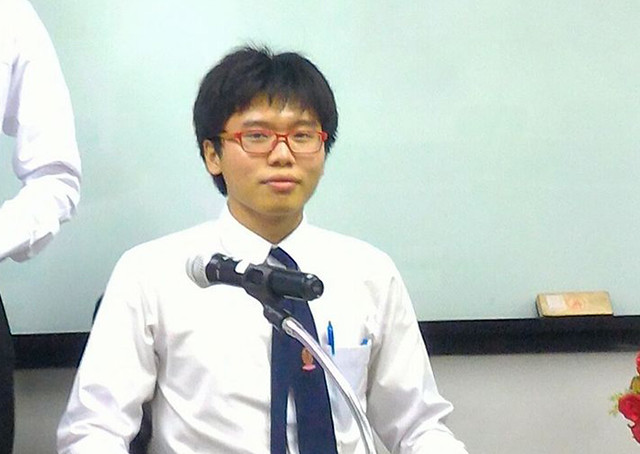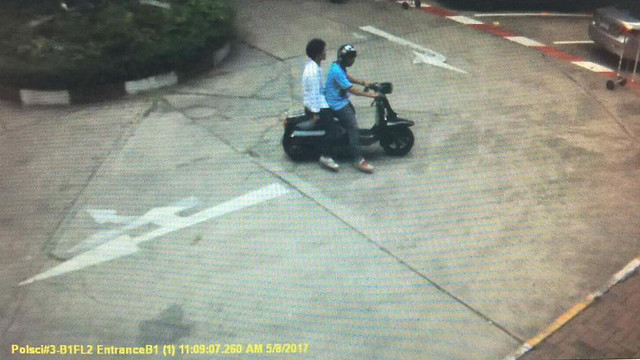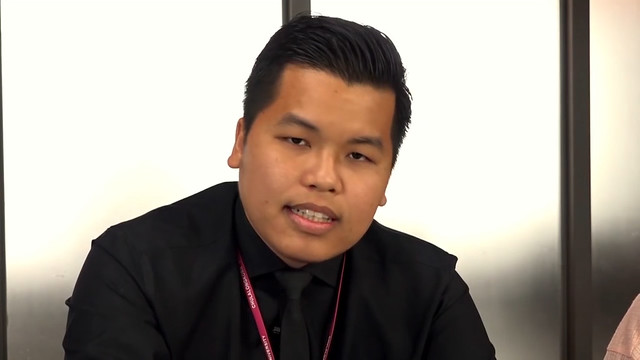A young academic explains what Chulalongkorn University (CU) means to Thai society and why conservatives were so furious when a progressive activist was voted to be president of the university’s student council.
Netiwit was elected as student president on 4 May, receiving 27 votes from 37 council members.
Hotheaded conservatives
Ever since Netiwit Chotiphatphaisal was elected as the new president of Chulalongkorn University’s student council, those who oppose his political views have lambasted both the student and his university.
Netiwit became both famous and infamous in Thai society when he protested against mandatory haircuts and uniforms in Thailand’s public schools. The public immediately labelled him as anti-establishment. Now he is studying at Chulalongkorn University, the oldest, the most established and, according to some, the best university in the country.
He will lead the student council in the upcoming academic year and conservatives are totally unhappy about that. They have commented on social media that they no longer want their children to study at CU. Some urged the university to ‘nullify the vote’.
Paisal Puechmongkol, an adviser to Deputy Prime Minister and deputy junta leader Prawit Wongsuwan, posted on his Facebook page that this ‘
germ of evil’ must be uprooted from the Thai education system.
“Educational institutions are the incubators of youth as the strength of the land. So we must never let them become the incubators of the germs of evil or the germs that betray or sell out the nation. If this happens, we must hasten to fix it right away,” reads Paisal’s post.
Tnews, a right-wing media outlet, published a story
alleging that Netiwit is connected with the red-shirt affiliated Pheu Thai Party. A politician mentioned in the story has subsequently filed a defamation complaint against a Facebook user for spreading such misinformation.
The most recent and worrying case involved two
belligerent men entering the university to search for Netiwit. The two reportedly used threatening language to ask for the whereabouts of the student activist. Netiwit subsequently filed a complaint to the police about the incident.
Two men search for Netiwit at his faculty
CU as a university of theatre
The question remains why these conservatives are so furious over one student. Chaichan Prangpratanporn explains that CU is not only a university, but also represents the dreams and ideals of Thai society.
Chaichan is a young blood academic and author of “Chula in revolt: the intellectual movement of Chulalongkorn University students before the 6 October event.” Chaichan was also once on the CU Student Council, enabling him to share the experiences and struggles that Netiwit will have to undergo during his term of office.
Chaichan argues that CU is seen as a university closely connected to the monarchy. It was initiated in the reign of King Rama V and declared a university in the reign of King Rama IV. Most Thai citizens dream of studying there or sending their children there. Netiwit is seen as sullying the image of the most royal university by his presidency.
In his freshman year, Netiwit caused a big controversy even before his first semester started. He briefly interrupted the ceremony where new CU students pay homage to the twin statues of King Rama V and King Rama VI, the co-founders of the university. Instead of prostrating himself, Netiwit and his friend walked in front of the statues and bowed.
Netiwit and a friend stand up shortly before the ceremony starts before walking to the statues (Photo from Mthai)
He later argued that King Rama V abolished the practice of prostration in an attempt to modernise the country. His action was, therefore, the fulfilment of the university founder’s wish. He also urged the university to reform the ceremony in accordance to the King’s wish by allowing new students to bow in the ceremony.
The conservatives then labelled him an anti-monarchy student activist, which does not go along with the university’s core value.
It is undeniable that CU has the image of being closely connected with the monarchy since from its very beginning, it was established by kings. Chaichan points that this image, however, is not stagnant. New ceremonies and narratives have been continuously added to strengthen this image and CU students must demonstrate high loyalty to the monarchy.
One obvious example is the ceremony where new students and new graduates pay homage to the university co-founders. People usually believe that this ritual emerged when the university was founded while, in fact, it was created in 1997.
Chaichan emphasises that all Thai kings have taken CU ceremonies very seriously. When King Rama VI established the university, he asked CU students to pay homage to the statue of King Rama V at the Royal Plaza every year. This was the first royally-created ceremony. King Rama VII attended graduation ceremonies and handed degrees to all students himself. This ceremony has continued until the present.
Chaichan added that the king who contributed most to CU’s royal image is King Rama IX. In 1948, the King composed a theme song for the university. In 1966, he planted five rain trees behind the twin statues. The rain tree has since become an icon of the university.
CU students are told about these events, especially during student orientation. Most buildings in CU are named after royal family members. These narratives and the physical context are mechanisms that effectively enshrine loyalty in students’ minds.
When these narratives and ceremonies become recognized in society, CU is not a mere university, but rather a theatre that acts as the ideal of a Thai university that produces not only brilliant, but also loyal students for the kingdom. As long as CU can retain this image, it will be the best university in the country, regardless of what ranking it gets.
“Although Mahidol University nowadays is better than CU in terms of ranking, do conservatives care that much about the ranking? They don’t. They don’t care what ranking CU gets or how many academic papers it publishes each year. They just care about how well these ceremonies are performed,” stated Chaichan
Chaichan added that other Thai universities tend to follow in the footsteps of CU. CU’s graduation ceremonies, student orientations and student uniforms have been adapted and used by universities nationwide. The rise of Netiwit, therefore, raises concerns that students with similar political ideologies may be rising in universities elsewhere.
Chaichan Prangpratanpon
Rise of CU student movement?
Another conversation topic right now is whether Netiwit’s presidency marks the rise of student movements in CU, while those in Thammasat University (TU) are in decline. But Chaichan disagrees.
He argues Netiwit’s rise does not reflect the strength of CU’s student movements, but rather weakness. Participation in and competition to lead TU’s student movements is high, making it difficult for a freshman to take the president's seat.
But CU is too weak to exclude Netiwit from its organisation. It has no choice but to give him what he wants. On the other hand, Chaichan sees that CU will have more power to control Netiwit in return.
“If CU gives Netiwit some position, he has to obey certain rules. The Vice President for Student and Alumni Affairs [Bancha Chalapirom] has recently
spoken to the media about Netiwit saying that now he is president, he should know what he should and shouldn’t do. This is a message to Netiwit that his status now is as a representative of CU students. He cannot do and say whatever he wants like before,” Chaichan observed.
Chaichan sees that the weakness of the CU student organisation will eventually benefit Netiwit. While the TU student movement seems to be strong and active in political issues, their lecturers are also experienced in containing student movements. They will not let their students cross the line of what is acceptable, especially when it comes to political issues.
The fact that CU has rarely had a student movement means that its lecturers lack experience in controlling student activists. And Netiwit will benefit from that.
A TU lecturer tries to stop student activists from continuing their campaign (Photo from Thai-Enews)
Lesson from a forerunner
As a former member of the student council, Chaichan expects Netiwit to make the council better-known. In the past, the council tried hard to make CU students realise its importance and function, but the result was unsatisfactory as its authority is very small.
Its main function is to approve the budget for student activities proposed by the Student Government, the elected executive branch. The concern that Netiwit would use his power to abolish traditional university activities and events is misplaced because this is beyond the council’s authority.
However, the council also has another task, which is hosting “special activities”, and Chaichan believes that the new presidentwill invest most of his efforts on this. The “special activities” are, for instance, public seminars, exhibitions, lectures, student forums and invitations to guest 'speakers.’
Last year, Netiwit made headlines again for attempting to host
a seminar featuring Joshua Wong, the pro-democracy student activist from Hong Kong. Wong was scheduled to give a talk on the “Politics of the New Generation” in an event commemorating the massacre of student activists at Thammasat University in 1976. Wong, however, was
barred by the Thai government from entering the country and later sent back to Hong Kong.
Chaichan is in fact concerned that one crucial role of the student council might be neglected during Netiwit’s presidency -- student welfare. Chaichan argued that since Netiwit was chosen as president in his freshman year, he has not experienced university life enough to understand these problems.
“One of the council’s jobs is to give comments on university management. He could overlook these issues. He has a deep understanding of human rights, freedom and politics. But on other issues that directly relate to students, like the cleanliness of student dorm canteens, he hasn’t shown much insight. I’m afraid he might merely stay in his world -- politics, human rights and freedom-- and ignore these problems,” Chaichan says.
Though Wong was sent back to Hong Kong, he gave a talk at the seminar via a skype call (Photo from Prachachat)
[After the Thai version of this story was published, Chaichan posted on his Facebook page that he had recently talked with Netiwit and found that student welfare is one of his team’s main priorities.]






